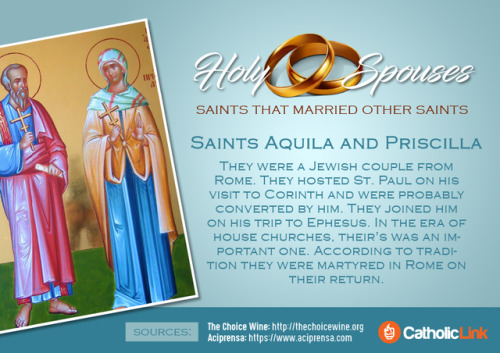#sacraments
“Shortly we will reenact the Washing of Feet. But could we not say that our priests wash feet in the Sacrament of Penance? Isn’t a good confession an experience of having the Lord himself remove the dirt of our sins from us with the purifying power of his goodness, his mercy – so that we might come to the table? God’s love really knows no bounds, but man can put a limit on it. That is certainly also remembered tonight in Judas’ betrayal. What was his betrayal but the rejection of love, of not wanting to be loved, of not loving. Such betrayals come about through human pride – and by thinking that what counts is not love but power and success. May nothing become more important than our communion with Jesus, nothing more important than God and his love.”
– Archbishop Thomas Wenski, Archdiocese of Miami
Post link

12 March: the Feast of St Gregory the Great, Bishop of Rome from 3 September 590 to his death.
The Mass of St Gregory is a favourite depiction in Christian art.
Tradition has it that, once when celebrating Mass, a woman smiled when receiving Communion. Questioned, she laughed at Gregory’s reverence for the host, insisting that it was nothing more than bread she had baked that day. Legend holds the host then appeared as a finger. Subsequently, tradition asserted that the image of Jesus as the “Man of Sorrows” appeared on the altar during the Mass.
HOMILY for 8 January
1 John 4:7-10; Ps 71; Mark 6:34-44

Following the Epiphany, that is to say, the revelation of God among us, the lectionary takes us through a series of miracles and marvels and wonders as Christ is shown to do all the things that deities are expected to do: he heals, provides food for the hungry, walks on water and masters the storm. Thus, Jesus reveals himself to be God through a well-established grammar of divine signs and activities. However, the people often are confounded, amazed, and uncertain what to make of these signs. Why? Because the one thing that nobody expected was that God should become Man.
So, when the Word became flesh and dwelt among us, God’s Word spoke a grammar and language of divinity that is unfamiliar to Man: The language of love, of charity, of agape, as St John put it in his writings. “God is love” declares the Beloved Disciple, and thus Christianity appropriates the Greek word agape and gives it a uniquely Christian meaning. For the ancient Greeks agape meant just something like affection or high esteem. But because St John uses it to describe the incarnate Word of God, so the meaning of the word changes and takes on a Christological form: agape for us Christians henceforth means sacrificial and unconditional love, the love made visible and embodied in Jesus Christ.
And the most perfect sign of God’s love for us takes place not in Bethlehem, nor in the countryside of Judea, nor on the streets of Jerusalem, but on the hill called Calvary and anticipated in an upper room on Mount Sion. For there Christ became “the sacrifice that takes our sins away”. However today’s Gospel account of the miraculous feeding at Tabgha in Galilee is rich in Eucharistic symbolism, such that the two fish and five loaves came to be used in early Christian art as a symbol of the Mass. For we are meant to make the connection between this feeding and the loving gift of Christ’s own self in the Eucharist. For the Mass is the Sacrament of Christ’s Sacrifice on Calvary.
Once again, this is unexpected perhaps. For, while feasting on divine food is part of the grammar of deity, it was not expected that God should feed us with himself, or that the banquet should become a sign of his Sacrifice of Love. Yet, for Christ, the language of his agapelove finds its most eloquent expression in the Mass, in this, the Sacrament of Charity. Here is the most perfect sign of divine love that is also the cause of love, agape among us Christians. For Sacraments effect what they signify. How, then, does our reception of the Eucharist empower us to love truly? How, in this Sacrament, where we are begotten by God and know God, shall we be formed to love others as Christ does?
Pope Benedict in his beautiful encyclical Deus Caritas Est, says: “The Eucharist draws us into Jesus’ act of self-oblation. More than just statically receiving the incarnate Logos, we enter into the very dynamic of his self-giving… Union with Christ is also union with all those to whom he gives himself. I cannot possess Christ just for myself; I can belong to him only in union with all those who have become, or who will become, his own. Communion draws me out of myself towards him, and thus also towards unity with all Christians. We become “one body”, completely joined in a single existence. Love of God and love of neighbour are now truly united: God incarnate draws us all to himself. We can thus understand how agape also became a term for the Eucharist: there God’s own agape comes to us bodily, in order to continue his work in us and through us.” For “[the Lord] encounters us ever anew, in the men and women who reflect his presence, in his word, in the sacraments, and especially in the Eucharist. In the Church’s Liturgy, in her prayer, in the living community of believers, we experience the love of God, we perceive his presence and we thus learn to recognize that presence in our daily lives. He has loved us first and he continues to do so; we too, then, can respond with love. God does not demand of us a feeling which we ourselves are incapable of producing. He loves us, he makes us see and experience his love, and since he has “loved us first”, love can also blossom as a response within us.”
Let us ponder and contemplate this great mystery, especially we who celebrate and receive the Eucharist daily, this beautiful gift of God’s agape love in the Mass that comes to encounter me and change me into himself. And in this new year, to help in this, I would encourage us to read again Pope Benedict’s first encyclical, Deus Caritas Est. 16 years after its publication it remains as compelling, insightful and challenging as when I first read it as a novice in Cambridge.
The prayer of absolution will change for US Catholics in 2023. Here’s how













